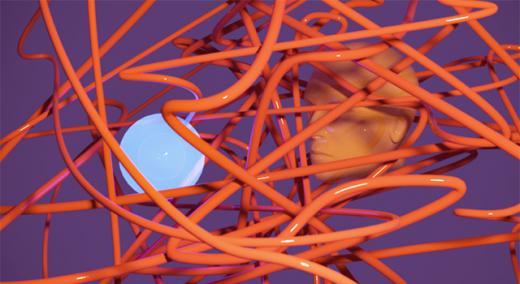First published Oct. 4, 2021, on MIT News.
When it comes to games such as chess or Go, artificial intelligence (AI) programs have far surpassed the best players in the world. These “superhuman” AIs are unmatched competitors, but perhaps harder than competing against humans is collaborating with them. Can the same technology get along with people?
|
ADVERTISEMENT |
In a new study, MIT Lincoln Laboratory researchers sought to find out how well humans could play the cooperative card game Hanabi with an advanced AI model trained to excel at playing with teammates it has never met before. In single-blind experiments, participants played two series of the game: one with the AI agent as their teammate, and the other with a rule-based agent, a bot manually programmed to play in a predefined way.
…

Comments
Big Question
By now, man vs. machine is all but a given struggle, so it is hard to think of something as societally intrinsic as fears of automation or robot take-overs having any greater nuance than we give them. There is more to the man vs. machine struggle than who rules over who, though.
We have reached AI; we need to collaborate—not contest.
As your article explains, the technology world is ready to integrate human expertise with AI assistance to the betterment of all fields involved; however, as long as humans struggle to overcome their own “squishiness” to embrace AI, this process will drag. AI may be smart and efficient, but they are not dynamic. It is surprising that this lack of dynamism frustrates humans to the point that whatever success they may achieve alongside AI becomes meaningless. As it turns out, humans rather lose and commiserate among each other than win at all.
This strikes the main issue of your article: humans and their “squishiness” bias. In this regard, it appears the MIT Lincoln Laboratory researchers have come across an entirely new chicken or the egg phenomenon, as it is important to ask whether this bias is an instinctual part of our psychology or bred from a pop-culture fraught with terminators. Which is it? And does understanding the root of that bias help eliminate it?
Add new comment